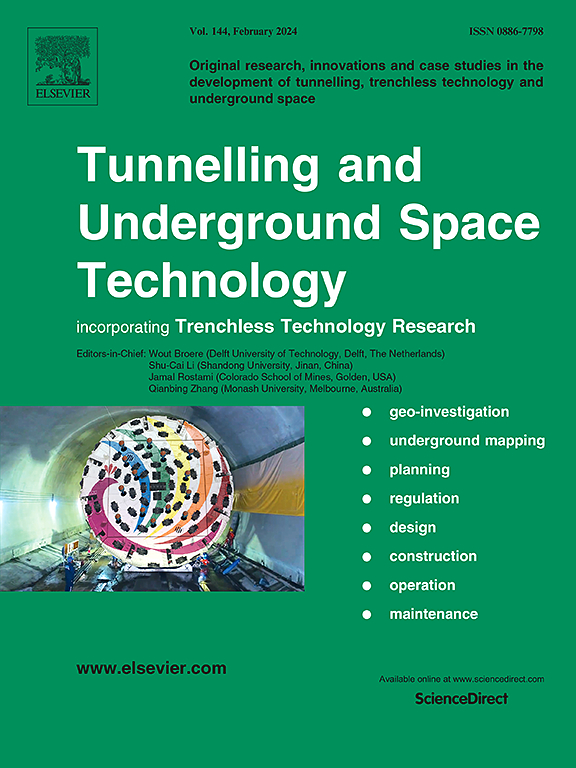基于多准则主动学习的结构可靠性稀疏贝叶斯PC-Kriging模型:在盾构隧道结构中的应用
IF 7.4
1区 工程技术
Q1 CONSTRUCTION & BUILDING TECHNOLOGY
引用次数: 0
摘要
传统的PC-Kriging替代模型在结构可靠性分析中经常遇到样本利用率有限以及收敛速度和准确性之间的权衡等挑战。本研究提出了一种结合稀疏贝叶斯学习和主动学习策略的增强PC-Kriging模型,该模型结合了一种平衡EI、熵和Sobol指数的动态采样方法,通过批量分散采样促进多样性,并使用谱投影更新样本。这些进展建立了一个自适应极限状态优化和多准则联合收敛的可靠性分析框架。与主流的单准则方法相比,通过基准案例验证证明了更高的准确性和收敛鲁棒性。将该方法进一步应用于盾构隧道压弯复合工况下的结构可靠性评估。主要发现包括:(1)该框架在较少的迭代中实现了高效的可靠性评估;(2)保持弯矩和轴力变量之间的连续性是至关重要的,因为破坏它们的相关性会导致失效概率估计的显著偏差;(3)与其他变量相比,区分管片衬砌偏心受压状态对极限状态函数和破坏概率都有显著影响。本研究扩展了多准则主动学习在工程可靠性分析中的适用性,为盾构隧道安全评估提供了系统的方法。本文章由计算机程序翻译,如有差异,请以英文原文为准。
Sparse Bayesian PC-Kriging modeling with multi-criteria active learning for structural reliability: Application to shield tunnel structures
The conventional PC-Kriging surrogate model in structural reliability analysis often encounters challenges such as limited sample utilization and the trade-off between convergence rate and accuracy. This study proposes an enhanced PC-Kriging model integrated with sparse Bayesian learning and an active learning strategy, which incorporates a dynamic sampling method that balances Expected Improvement (EI), Entropy, and Sobol indices, promotes diversity through batch dispersed sampling, and updates samples using spectral projection. These advancements establish a reliability analysis framework enabling adaptive limit-state refinement and multi-criterion joint convergence. Validation via benchmark cases demonstrates superior accuracy and convergence robustness compared to mainstream single-criterion approaches. The method is further applied to assess the structural reliability of shield tunnels under combined compression-bending conditions. Key findings include: (1) The framework achieves efficient reliability evaluation within fewer iterations; (2) Preserving continuity between bending moment and axial force variables is critical, as disrupting their correlation introduces significant deviations in failure probability estimates; (3) Distinguishing eccentric compression states in segmental linings exhibits pronounced impacts on both limit-state functions and failure probabilities compared to other variables. This work extends the applicability of multi-criterion active learning in engineering reliability analysis and provides a systematic methodology for shield tunnel safety assessment.
求助全文
通过发布文献求助,成功后即可免费获取论文全文。
去求助
来源期刊

Tunnelling and Underground Space Technology
工程技术-工程:土木
CiteScore
11.90
自引率
18.80%
发文量
454
审稿时长
10.8 months
期刊介绍:
Tunnelling and Underground Space Technology is an international journal which publishes authoritative articles encompassing the development of innovative uses of underground space and the results of high quality research into improved, more cost-effective techniques for the planning, geo-investigation, design, construction, operation and maintenance of underground and earth-sheltered structures. The journal provides an effective vehicle for the improved worldwide exchange of information on developments in underground technology - and the experience gained from its use - and is strongly committed to publishing papers on the interdisciplinary aspects of creating, planning, and regulating underground space.
 求助内容:
求助内容: 应助结果提醒方式:
应助结果提醒方式:


